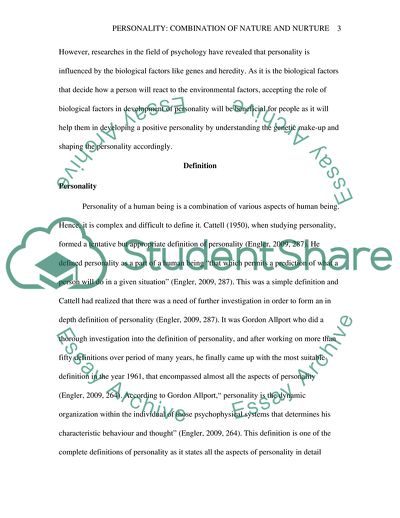Cite this document
(Personality: Combination of Nature and Nurture Literature review, n.d.)
Personality: Combination of Nature and Nurture Literature review. Retrieved from https://studentshare.org/biology/1760109-in-which-level-the-growth-of-the-personality-is-influenced-by-biological-factors
Personality: Combination of Nature and Nurture Literature review. Retrieved from https://studentshare.org/biology/1760109-in-which-level-the-growth-of-the-personality-is-influenced-by-biological-factors
(Personality: Combination of Nature and Nurture Literature Review)
Personality: Combination of Nature and Nurture Literature Review. https://studentshare.org/biology/1760109-in-which-level-the-growth-of-the-personality-is-influenced-by-biological-factors.
Personality: Combination of Nature and Nurture Literature Review. https://studentshare.org/biology/1760109-in-which-level-the-growth-of-the-personality-is-influenced-by-biological-factors.
“Personality: Combination of Nature and Nurture Literature Review”. https://studentshare.org/biology/1760109-in-which-level-the-growth-of-the-personality-is-influenced-by-biological-factors.


